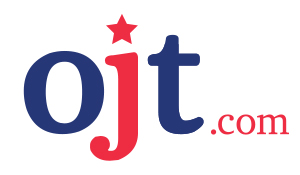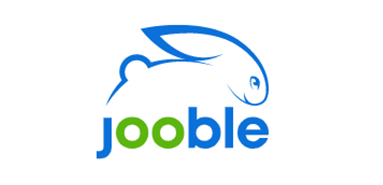Academics
Getting started at Harper College? One of the first recommended steps is choosing an Area of Interest. By selecting your Area of Interest, we can put you on the right path to complete your goals. While some students are very clear about what they want to study, other students benefit from reviewing the options before deciding.
We have 10 Areas of Interest for you to explore. Which one is right for you? It depends on many factors: your career or transfer goals, your values and your interests. Review the Programs of Study within each Area of Interest to learn more. Still not sure? Consider exploring further using our career assessment,
Education

Teachers and classroom aides are some of the most important people in the lives of children. They not only provide the educational foundation for students’ lives, they give the support and encouragement young people need to succeed.
Harper College offers several degree and certificate programs designed to prepare you for immediate employment or career advancement as a classroom educator or assistant, or to prepare you to transfer to a four-year university to complete a bachelor’s degree. Programs include Early Childhood Education, Elementary Education, Secondary Education, Special Education, Paraprofessional Educator, and Teaching English to Speakers of Other Languages (TESOL).
About Harper College

We are Harper College…the college in your community.
The College was established by referendum in 1965 and opened September 1967. It is named for Dr. William Rainey Harper, a pioneer in the junior college movement in the United States and the first president of the University of Chicago.
Harper College is now one of the nation’s premier community colleges and one of the largest, serving more than 35,000 students annually in Chicago’s northwest suburbs. The College’s academic programs prepare students for rewarding careers and for transfer to four-year universities. Harper offers associate degree and certification programs, advanced career programs, workforce training, professional development, continuing education classes, accelerated degree options for adults and developmental education programs.
Community Relations
We proudly serve the following communities: Arlington Heights, Barrington, Barrington Hills, Elk Grove Village, Inverness, Lake Barrington. Mount Prospect, North Barrington, Palatine, Prospect Heights, Rolling Meadows, Schaumburg, South Barrington, Tower Lakes, Wheeling and portions of Hoffman Estates, Deer Park, Buffalo Grove, Carpentersville, Des Plaines, Roselle, and Fox River Grove.
Harper is forming new relationships with grades schools, high schools, four-year universities and employers to develop clear and affordable career pathways for students.
History of Harper College
As early as 1950, discussion began about establishing a community college. An active committee was at work on the project in 1961, and a community survey was done in 1962. In 1964, an area community college committee studied the feasibility of establishing a community college. The study committee’s report concluded with the recommendation that “the citizens of the two high school districts…take appropriate steps to bring the voters of the four townships the proposal that a community college be established.”
Early in 1966, the present 200-acre campus site in Palatine was selected, and the College was named William Rainey Harper College, in honor of the first President of the University of Chicago and the originator of the community college concept. In the spring, district voters approved a bond referendum by a four-to-one margin.
In 1967, Harper’s first faculty members were hired, and classes for 1,725 students were begun in temporary facilities in September. In the same year, the College broke ground for the first six buildings on campus property.
The William Rainey Harper Educational Foundation was incorporated in 1973 to broaden and enrich the College program through support of such projects as scholarships and special project initiatives funded by private donations to the College.
In September 1975, a successful funding referendum was held that allowed the College to proceed with the completion of the Palatine campus. Buildings G and H, housing vocational technology shops and laboratories, were completed in 1977. The Board of Trustees named an interim successor after the founding College President, Dr.Robert Lahti, resigned. Harper’s second President, James McGrath, assumed the position the following year.
In 1978, the College began a major effort to develop a new master plan in concert with a comprehensive self-study effort. A referendum to increase operating revenue failed to gain voter approval that year. This led to major budget cuts in an effort to match expenditures with income.
By 1980, the campus had increased to 15 buildings with the opening of the physical education, athletics, and recreation facility (Building M) and business, social science, and vocational education housed in Buildings I and J.
In 1982, the College established a CAD/CAM training center in cooperation with high technology firms in the area. The center was designed to provide instruction and resource materials relating to computer-aided design and manufacturing.
In February 1985, district residents approved a tax rate increase for the operation of the College. This was the first increase in tax support for the educational programs, services, and operating expenses of Harper College since the College was established.
In 1988, the College hired its third President, Dr. Paul Thompson, after the retirement of Dr. McGrath. The College began an extensive study in 1990 which led to the vision statement “Our Preferred Future.” More than 1,000 College personnel and community residents worked together to develop this document to serve as a Harper College planning guide until the year 2000. In response to an emerging industry need, the Corporate Services department, now called Harper College for Business, was established in 1991 as the College’s office of the first contact representing all programs of interest to businesses and industry, including credit classes, continuing education, and customized training.
In 1992, a new Information Systems Division was formed. Harper developed a new technology plan in 1994, following two years of extensive participation and input by administrators, faculty, and staff. In 1993, the College opened Building S to house the Publications and Communication Services Department. In spring 1994, the Liberal Arts building was opened. Building L included the Liberal Arts Division office, classrooms, faculty offices, and the College Bookstore. A studio (Black Box) theater and three-dimensional art studios occupy the first floor of the facility. The two buildings were part of a building phase that also included renovations to Building F which houses the Learning Resources Center and the Academic Enrichment and Language Studies Division.
In 1994, the College purchased the Northeast Center (NEC). The Board of Trustees approved the first and second phases of the Technology Plan in 1995 and 1996. The campus computer network was completed in 1996, providing links between offices and classrooms and as a resource to position Harper for higher education in the current century.
In 1997, Harper College received a 10-year re-accreditation from the North Central Association’s Commission on Higher Education.
In 1998, Dr. Robert L. Breuder, the fourth President, was hired. The College implemented a new shared governance structure and published its first comprehensive strategic long-range plan (SLRP). Groundbreaking for the new Performing Arts Center (PAC) and the Wojcik Conference Center was held on May 18, 2000. The new buildings were partially funded by the Illinois Capital Development Board. In 2002, the conference center opened and was named the Wojcik Conference Center in recognition of a $1.1 million member initiative grant given to Harper by Illinois State Representative Kay Wojcik. At a special Board meeting on August 16, 2000, the Trustees were presented with a comprehensive long-range Campus Master Plan. The plan was intended to guide the College into the future. On November 7, 2000, the Harper College district residents passed an $88.8 million referendum to build a new facility to house Harper’s growing science, technology, and health care programs. Construction of Avanté began in fall 2001.
On August 29, 2001, Harper College purchased a new facility in Schaumburg for the Technical Education and Consulting at Harper (TECH) program. The facility, now called the Harper Professional Center (HPC), is the site for the new Fast Track degree option.
In 2004, Harper College served a total of 37,338 credit and noncredit students during the summer, fall, and spring terms, making Harper one of the largest community colleges in the country. In 2004, Harper College opened Avanté, Center for Science, Health Careers, and Emerging Technologies. In 2005, Avanté was selected as a Merit Award finalist by the Chicago Building Congress (CBC). The CBC praised Avanté for its distinctive design and outstanding construction, and its positive impact on the surrounding community. In 2006, Harper College received the National Science Foundation Undergraduate Research grant.
In 2009, Dr.Kenneth Ender became Harper College’s fifth president.
In 2010, the College worked with community partners to develop a new five-year strategic plan. The plan emphasizes increasing the number of students who graduate from Harper with a degree or workforce certificate or transfer successfully to a four-year university. The plan focuses on four strategic directions: Completion (increase completion and achievement of all students with a focus on underperforming student groups), Accountability (create a culture of innovation, accountability, and transparency), Partnerships (engage in partnerships to develop programs in existing and emerging career areas that enable students to succeed in a global economy) and Inspiration (develop programs with educational partners that inspire postsecondary education and career readiness as a life goal.)
In 2011, the College approved a new Campus Master Plan. The plan outlines a comprehensive ten-year program to renovate the campus to meet the needs of 21st-century teaching and learning.
In 2012, the U.S. Department of Labor awarded Harper $12.9 million to expand the Advanced Manufacturing program to community colleges across Illinois. The program offers industry-endorsed skills certificates and paid internships with local manufacturers. It’s also designed to encourage younger students to consider a manufacturing career by offering college credit to high school students.
In 2013, the College broke ground on $38 million in renovations of the Engineering and Technology Center. The project includes a new state of the art classrooms for career and technical programs and expanded facilities for Harper’s innovative Advanced Manufacturing Program. The College also broke ground on the $46 million renovations of Building D which includes new lecture halls, general classrooms, and student study and commons areas.
In 2014, the College relaunched the Northeast Center (NEC) in Prospect Heights as the Harper College Learning and Career Center (LCC) with a target market focus on local community needs, credential programs, wrap-around services, and workforce emphasis.
The College simultaneously launched the Education and Work Center (EWC) in Hanover Park, an unprecedented partnership with Elgin Community College, the Village of Hanover Park, the State of Illinois, and The Chicago Cook Workforce Partnership. The EWC offers adult education programs and a full-service Illinois WorkNet® Center for career support. Harper College offers classes during the day and Elgin Community College offers evening classes.
In 2015, the College launched the Harper College Promise Scholarship Program. The program offers every eligible public high school freshman in Harper’s district the opportunity to attend Harper for up to two years tuition-free if, during high school, they maintain solid grades, have good attendance, don’t repeat classes, graduate on time and perform community service. During its first year, more than 4,600 high school freshmen in Harper’s district signed up for the program.
In 2016, the College received the prestigious Leah Meyer Austin Award from Achieving the Dream. The award honors Harper’s outstanding achievement in creating an institutional culture dedicated to supporting and increasing the success of all students. This year also marked the implementation of the 2016-2019 Strategic Plan which focuses on increasing levels of Inclusion, Engagement, and Achievement for our students. Five teams were formed to develop strategies to improve: Academic Planning and Pathways, Curriculum Instruction, Employee Skills, Stewardship, and Student Experience.
The College was awarded a $2.5 million American Apprenticeship Initiative grant by the Department of Labor to support apprenticeships in the Insurance, Information Technology, and Manufacturing sectors. The first cohort of 4,624 freshmen from district high schools applied to the Harper Promise Program. The Outdoor Amphitheatre was completed and served as the venue for the 2016 Commencement Ceremony and construction of the FMA Manufacturing Lab, which houses high-tech metal fabrication equipment, was completed.
The year 2017 marked the beginning of the College’s yearlong 50th Anniversary celebration honoring its proud past, affirming its present mission and impact, and aspiring to an even stronger future. This milestone event led to the publication of Harper College, the First 50 Years, a 200-page history of Harper written by Professor Emeritus Trygve Thoreson. As part of the celebration, the College hosted its first-ever TEDx event. Harper’s Educational Foundation’s 50th Anniversary Gala was the most successful to date, raising more than $1 million to support student scholarships and emerging educational initiatives at the College.
Major accomplishments in 2017 included the implementation of the assigned advisor case management model to assist students in navigating toward completion and the launch of the University Center, where students can complete a bachelor’s degree without leaving Harper’s campus.
In 2018, the College successfully completed the two-and-a-half-year rigorous reaccreditation process that resulted in the Higher Learning Commission (HLC) reaffirming the College’s accreditation through 2027-2028.
The College has emerged as a leader in community colleges across the country, receiving several national awards for its student focus and continuous improvement efforts: the Association of Community College Trustees’ (ACCT’s) Central Region Equity Award; the NAFSA Senator Paul Simon Spotlight Award for its innovative Global Region of Focus Initiative; and recognition as a 2018 Excellence in Assessment designee for successfully integrating assessment practices across campus and using those results to guide institutional decision-making and improve student performance. Harper’s President, Dr. Kenneth Ender, was honored with the Gary Davis Ethical Leadership Award by the Illinois College Trustees Association.
Harper’s commitment to excellence is evident in the success of our students. Over the last eight years, 10 Harper students have been awarded the Jack Kent Cooke Undergraduate Transfer Scholarship. Worth up to $40,000 annually for three years, the scholarship is one of the most prestigious in the nation for community college students transferring to four-year institutions.
Harper completed the latest phase of its Campus Master Plan with the renovation of two major buildings. The original 1969 library was reimagined as a light-filled learning space and was dedicated as the David K. Hill Family Library in honor of former Trustee David K. Hill and the Hill family’s donation of more than $1 million in support of the College’s programs. The aging and deteriorating Wellness and Sports Center, Building M, was transformed into the Foglia Foundation Health and Recreation Center as the result of a public-private partnership with the Palatine Park District and Northwest Community Healthcare.
In the fall of 2018, the members of District 512 endorsed the important role Harper plays in the community by voting overwhelmingly in favor of a referendum question to support the College’s campus master plan. The referendum passed with 61 percent of the vote and will provide $180 million toward capital improvements to help position Harper students and the community for a strong future.
In January 2019, the Board of Trustees voted to name the outdoor pavilion the Drs. Kenneth and Catherine Ender Pavilion in recognition of their significant contributions to the College and the Foundation over the previous decade.
In February 2019, the Board of Trustees selected Dr. Avis Proctor to be the sixth president – and the first woman – to lead the College and build on the legacy of Dr. Ender, who stepped down on June 30, 2019, after helping to transform Harper into a premier 21st-century community college.
Dr. Proctor took the helm on July 1, 2019, and embarked on a Year of Engagement to learn about the institution, find ways to leverage resources and assets and launch new initiatives. This work is tied closely to the Strategic Planning process, which draws on input from faculty, staff, students, and the community to set the strategic priorities for the college through 2024.
In fall 2019, Harper College welcomed its inaugural cohort of 421 Promise Scholars to campus. Dr. Proctor also launched several task forces and teams to address issues that were identified during her first few months at Harper. Among them is the Transportation Task Force, which is exploring ways to improve transportation options for students, employees, and community members. The Basic Student Needs Assessment Team was also assembled to take a holistic look at students’ basic needs so the College has a better understanding of their financial wellness; several pilot initiatives were launched to help address some of the problems facing students.
Harper College MEANS business

Whether you’re a start-up or a Fortune 500 company, Harper College offers your organization a comprehensive and integrated approach to workforce development. Harper College can help you grow with a flexible, proactive strategy adapted to meet your needs. We are committed to your success. We are Harper.










